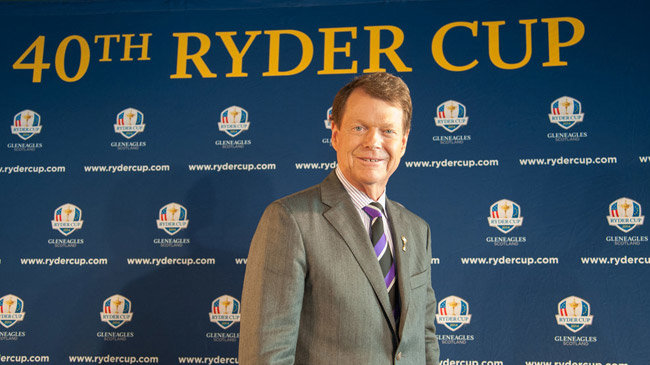Watson reduces captain's picks so players can earn more spots
 .View gallery
.View galleryTom Watson is seeking his own balance between his picks and players who play their way onto the team.(Getty Images)

PGA.COM April 22, 2013 8:23 AM
It's a philosophical difference, and rational arguments can be made on both sides. On Wednesday morning, 2014 Ryder Cup Captain Tom Watson announced that he was revising the team selection process by reducing his captain's picks from four to three. That means that nine players will qualify and Watson will pick three in September of 2014, a few weeks prior to the event. Under the system that was in place since 2008, eight players qualified and four were selected by the captain. "Giving our players one more opportunity to earn a spot on merit, I believe, is the right thing to do," said Watson. "I will use all possible resources in choosing these three captain's choices to complete the best possible team in order to win the Cup back for the United States." This seems quite rational and logical. But so did the system that Paul Azinger instituted in 2008. Zinger lobbied for the captaincy at Valhalla, because he wanted to institute his now-famous pod system, breaking the 12-man team into three four-man pods and having those pods bond over the course of the week, a concept he learned by studying Navy SEAL training. Davis Love III used a modified version of that same strategy in 2012, when he kept the same twosomes together from the moment the team landed in Chicago until the singles matches on Sunday. But equally important to Zinger's strategy was changing the qualification process, taking the captain's picks from two to four - which Watson has now changed to three - and revamping the way players earned points, which Watson has left unchanged. Players will continue to earn Ryder Cup points only during the major championships in non-Ryder Cup years. Points increase and encompass all tournaments during Ryder Cup years, with additional weight given to the majors. That change from a system where players earned points for top-10 finishes and wins was a compromise hashed out at the PGA of America offices in Palm Beach Gardens, Fla. Zinger originally wanted to eliminate off-year qualification altogether, but he received pushback from PGA officials on that point. "I was challenging orthodoxy," Zinger said. "The only way to change outcomes is to change events. The definition of insanity is doing the same thing over and over again and expecting a different result. We had been doing things one way for years and we'd been losing. If we were using a two-year qualification system 'because that's how it's always been done,' then we needed to try something different, because what we'd done hadn't worked too well." The compromise worked in 2008 and no one thinks that U.S. fielded a weak team in 2010 or 2012, either. Now, the only difference is that nine players will earn their way onto the roster instead of eight, with Watson filling out the rest. On the whole it's a minor tweak, one that will give the players more control over their own destiny without inhibiting the captain's ability to fill out his team with the hottest players prior to the matches. And if Watson chooses to break the team into four-man groups as Azinger did, he still has the opportunity to put one of his picks in each pod. "Tom is committed to do everything in his power to win the Ryder Cup," PGA of America President Ted Bishop said. "His evaluation and research of the U.S. qualifying system is just another example of his dedication to identify the best players for the 2014 United States Ryder Cup Team."
By: Steve Eubanks, PGA.com
Atricles Course: http://golfatn.blogspot.com/
No comments:
Post a Comment